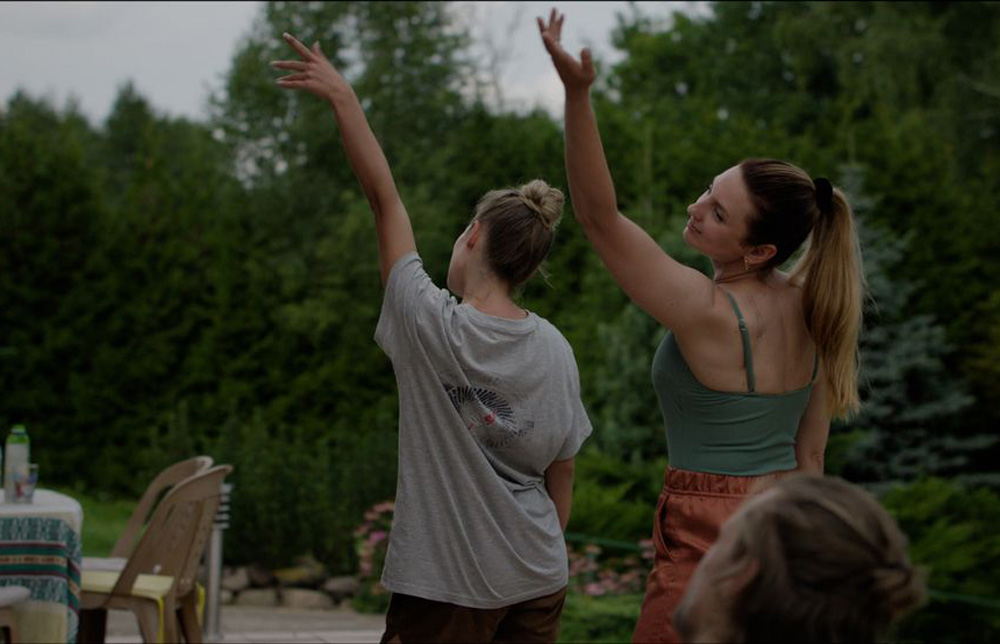There’s an air of violence that hangs over “Drowning Dry,” even as it takes place during am idyllic weekend by the lake where sisters Juste (Agnė Kaktaitė) and Ernesta (Gelminė Glemžaitė) have a summer home they inherited from their parents. Neither are wealthy and there’s talk of selling so Ernesta and her husband Lukas (Paulius Markevičius) could afford a place to live year-around, though Juste’s husband Tomas (Giedrius Kiela) would prefer not to, making this weekend not quite the getaway from their regular lives that it could be, but even in moments of play, there always seems an attempt at destruction, with a leisurely smoke outside of cigars between Lukas and Tomas interrupted by the latter’s suggestion that they spar a bit for fun, a particularly loaded request when Lukas is a semi-pro MMA fighter.
It surely isn’t coincidental that this scene leads into the most pivotal moment in “Drowning Dry,” Laurynas Bareisa’s engrossing drama where the writer/director approaches the story just as savagely as the brutality that visits its characters in unexpected ways, creating a “Sliding Doors”-style structure in which a tragedy is promised but to whom and what effect it will have manifests itself in different ways. Although the varying outcomes of what happens at Tomas’ birthday shouldn’t be revealed, Bareisa delivers a genuinely unnerving experience that leaves it up to the audience to catch on once things start going off-track, giving no warning about the turns it will take to abrupt cuts to alternate realities for the sisters that mirrors how they’ll be blindsided themselves, and perhaps just as surprisingly, not always for the worse.
The title of “Drowning Dry” may prepare one for an accident in the lake, but Juste and Ernesta can be seen treading water before they can even take a dip at their parents’ house. Both are discontent in their marriages — Tomas doesn’t impress Juste by undressing as soon as they reach the hideaway, hoping for a roll in the hay while she is more concerned about looking after their daughter Urte and her sister’s welfare when Ernesta would clearly like her husband to stop entering the octagon for amateur matches, having a young son Kristupas to support. It’s a strong enough set-up that when the unthinkable occurs, you know exactly what’s going through their minds not only thanks to how thoughtfully Bareisa has put together the film’s structure, but the attention paid to each frame, with the director acting as his own cinematographer, folding in long, languid zooms to reflect a constant battle between the larger future considerations at hand for the sisters and their more immediate concerns.
With its pretzel-like plotting after a devastating event, the time-shifting in “Drowning Dry” can occasionally be a bit more jarring than likely intended and the narrative math of the film can seem like it doesn’t quite entirely add up. But the emotional logic impressively holds throughout and the entire cast from Kaktaitė and Glemžaitė as the sisters to Markevičius and Kiela, playing their boorish spouses, give plenty to latch onto even when time itself isn’t a constant. Bareisa doesn’t only have a big imagination for all the possibilities that are out there for his characters in the wake of tragedy, but it turns out for cinema itself and it brings some unexpected hope into a tale of sorrow.
“Drowning Dry” does not yet have U.S. distribution.




